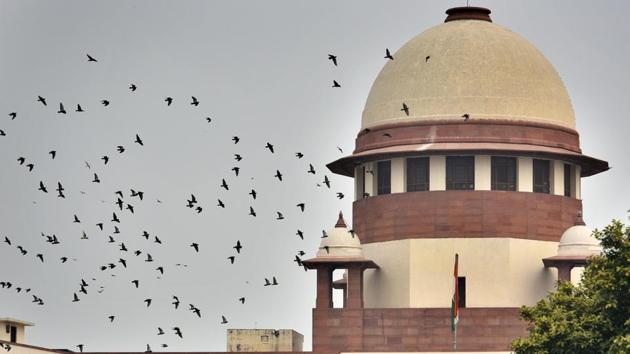Supreme Court puts on hold its order to evict forest dwellers
The Supreme Court on Thursday put on hold its own February 13 order for the eviction of 1 million tribespeople and others who allegedly encroached on forest lands.
The Supreme Court on Thursday put on hold its own February 13 order for the eviction of 1 million tribespeople and others who allegedly encroached on forest lands, rebuking the central government for waking up from “slumber” after so long.

A bench led by justice Arun Mishra kept its order in abeyance until July 10, the next date of hearing on the matter, and directed 19 states to file affidavits detailing the number of people whose claims for the right to live in forests had been rejected and the process adopted for rejecting them.
To be filed by chief secretaries of the state governments, the affidavits must also specify the law under which the eviction orders had been passed and whether the claimants had been informed about the orders or not. The court also wants to know if there is any appellate authority the claimants can approach for challenging the claim rejections.
“You go into a slumber all the while and after we pass an order you are now seeking modification of the order,” justice Mishra told solicitor general Tushar Mehta during the hearing.
Mehta admitted to a lapse on the part of the Centre, which had moved an application on Wednesday requesting the court to stay the implementation of its February order.
“There was an absence of assistance from our side... this is a human problem and not a legal issue. These are poor people,” Mehta said, drawing the court’s attention to the repeated letters the Centre had sent to the states seeking information on the progress they had made in deciding on the claims. He said due process of law was not followed by the states in rejecting the claims.
Justice Mishra told Mehta that the order to carry out eviction of forest land encroachers was first passed almost a year ago by a bench headed by justice MB Lokur, who retired in December. “You were a party to the case. You should have brought all this on record,” he said.
Reacting to the top court order, the Campaign for Survival and Dignity (CVD), a network of non-government organisations working for the rights of tribals and other forest dwellers, said the court order evicting 1 million people was a direct result of the “government’s failure to argue in defence of the Forest Rights Act.”
The government’s plea seeking a modification of the SC order was the result of a struggle waged by forest dwellers across the country, CVD said in a statement.
“Struggle is not over… The February 13 order has been put on hold, not withdraw,” the statement said, adding that the fight to protect the rights of tribals and other forest dwellers would continue.
The bench, which included justices Navin Sinha and MR Shah, while keeping the February order in abeyance, clarified that under the guise of forest dwellers, it would not permit unscrupulous encroachers on forest land. Several lawyers appearing for the tribals complained that the states had not followed the process the law has prescribed to decide on claims to forest land.
The court then ordered that the states must also inform it about the authority that rejected the claims of tribals and also whether the states followed the procedure as laid down in the Scheduled Tribes and Other Forest Dwellers (Recognition of Forest Rights) Act, 2006. The states were directed to produce the orders rejecting the claims.
Under the law, only notified scheduled tribes and traditional forest dwellers, in bona fide occupation of the land, are entitled to cultivate and occupy the lands. But over the years, several non-tribals and traditional forest dwellers had illegally occupied the forest lands, causing massive deforestation, as was alleged in a public interest litigation that led to the eviction order.
Mehta told the court that the Act was a beneficial legislation and should be construed liberally to help illiterate and poor people.
“In the circumstances we direct states to file detailed affidavit covering all the aforesaid aspects and also place on record rejection orders and also the grounds on which the claims were rejected. It may also be stated whether the tribals were given opportunity to furnish evidence and if yes to what extent and whether reasoned orders were passed regarding rejection of the claims,” the court ruled.
The court asked the states to even point out in the affidavits category-wise details of those who are occupying forest lands and whether such persons can be treated as tribals.






